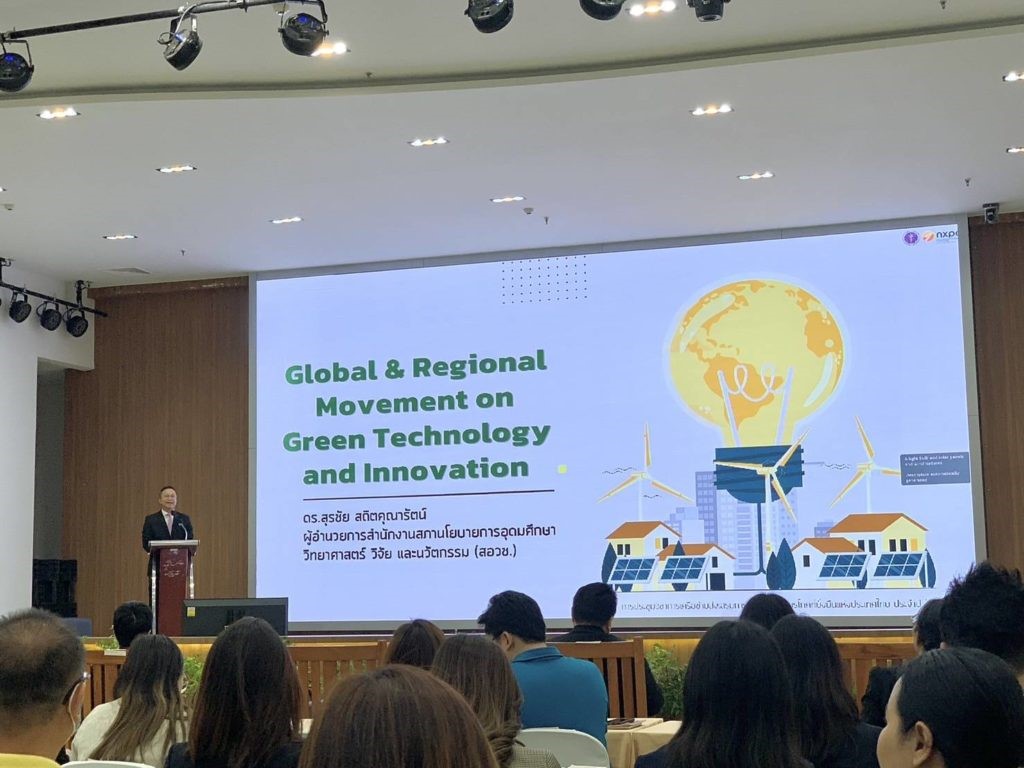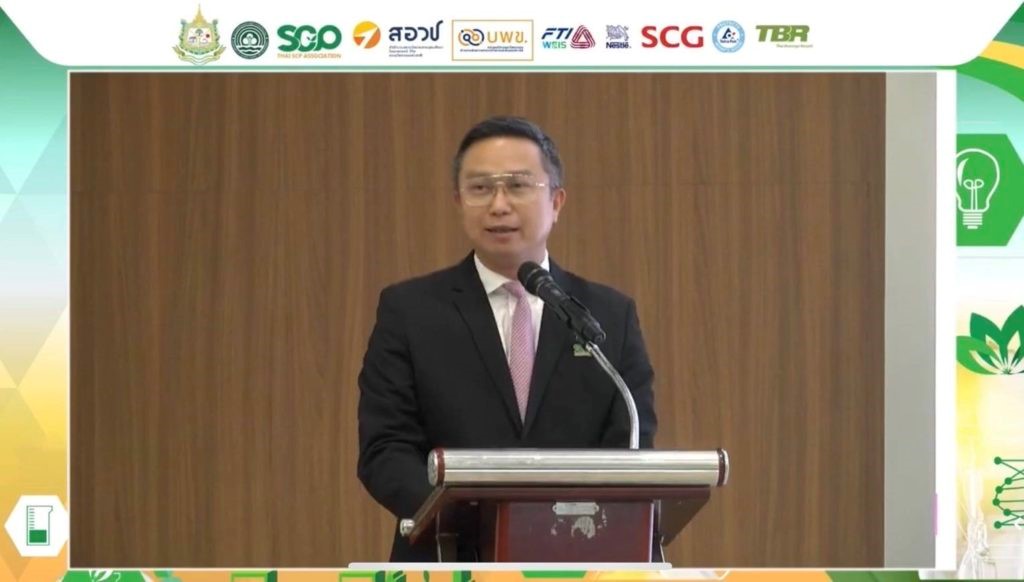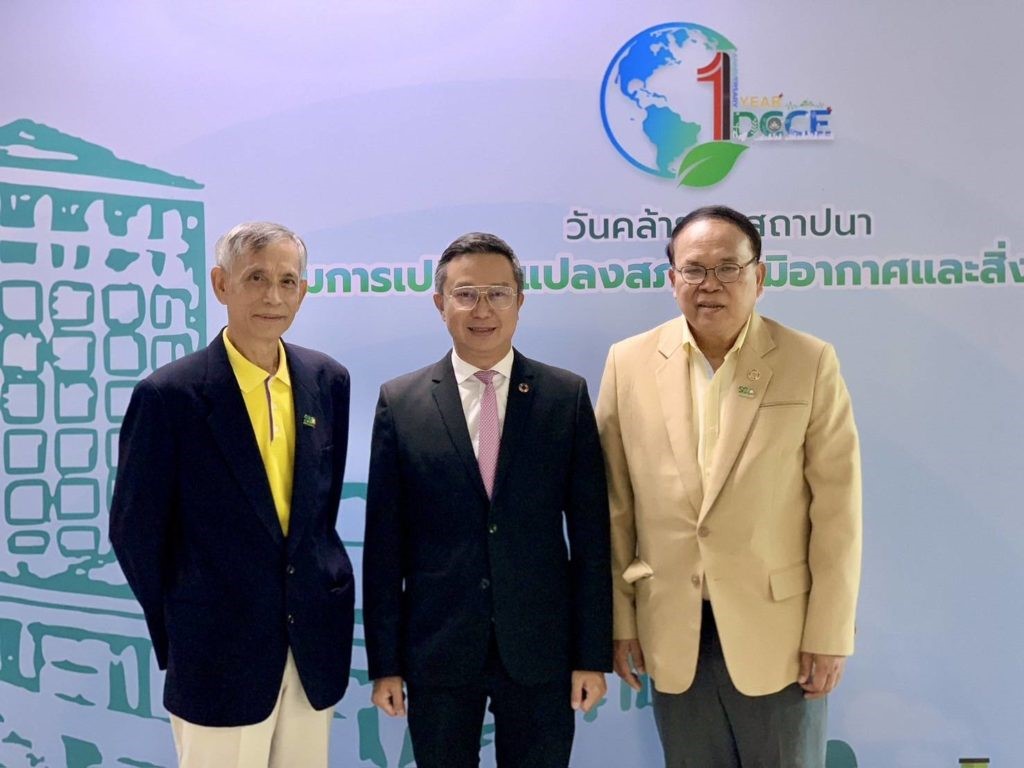On 23 December 2024, NXPO President Dr. Surachai Sathitkunarat delivered a presentation titled “Global & Regional Movement on Green Technology and Innovation” at the 2024 Thai SCP Annual Conference: SCP Implementation through Decarbonization and Multistakeholder Partnership. The event was organized by the Thai Sustainable Consumption and Production Network (Thai SCP) in collaboration with various partners, including the Department of Climate Change and Environment (DCCE) and NXPO.

In his presentation, Dr. Surachai underscored the increasing global focus on climate change, with emphasis on various aspects, including contribution to the green economy, implementation of clean technology, climate mitigation and adaptation. He added that the U.S., Europe, China, and India are leading the way in climate technology investments, as reported in The State of Climate Tech 2020.
Dr. Surachai elaborated on how NXPO employs the triple helix approach to foster collaboration among key stakeholders in developing a green technology ecosystem. These efforts have led to the establishment of the National Innovation System (NIS) driven by three principal sectors: industry, academia, and government. Industry takes the lead as the technology user, while academic and research institutions serve as contributors of knowledge and innovation. The government acts as a facilitator, promoting cross-sectoral collaboration and coordinating international partnerships.
For Thailand, while renewable energy remains a major focus, Dr. Surachai emphasized the need to explore emerging technologies such as carbon capture and storage (CCS), carbon capture, utilization, and storage (CCUS), hydrogen technologies, small modular reactors (SMR) and micro modular reactors (MMR).

Dr. Surachai highlighted NXPO’s role as Thailand’s National Designated Entity (NDE) for the UNFCCC’s Technology Mechanism. Key initiatives under this framework include the development of a national green hydrogen roadmap and the Technology Needs Assessment (TNA) to identify suitable climate technologies for Thailand to secure funding and support from the UNFCCC mechanisms and other avenues. The second TNA study is set to launch in January 2025, with its findings to be integrated into Thailand’s Science, Research, and Innovation Plan and funding programs through collaboration with the Thailand Science Research Innovation (TSRI).
Over the past decade, NXPO has successfully coordinated the submission of Thai projects for technology assistance through the UNFCCC’s Climate Technology Centre and Network (CTCN). To date, over 10 projects have received support, with several still ongoing. NXPO is also working to secure large-scale funding from the Green Climate Fund (GCF) for national technology infrastructure. “It is our commitment to foster stakeholder collaboration across industry, academia, government and civil society, while connecting Thailand to global partners. These efforts will enable the country to achieve its climate goals,” concluded Dr. Surachai.








